When we think of ‘Men of the Classics’ of the late 80’s and early 90’s names like Sean Kelly, Moreno Argentin, the late Claude Criquielion, Adrie van der Poel and Gianni Bugno come to mind. A name we perhaps overlook is that of Belgium’s Eric Van Lancker, despite the fact that he won four World Cup races and was a fixture on the world’s most successful team of the day – Peter Post’s mighty Panasonic armada.
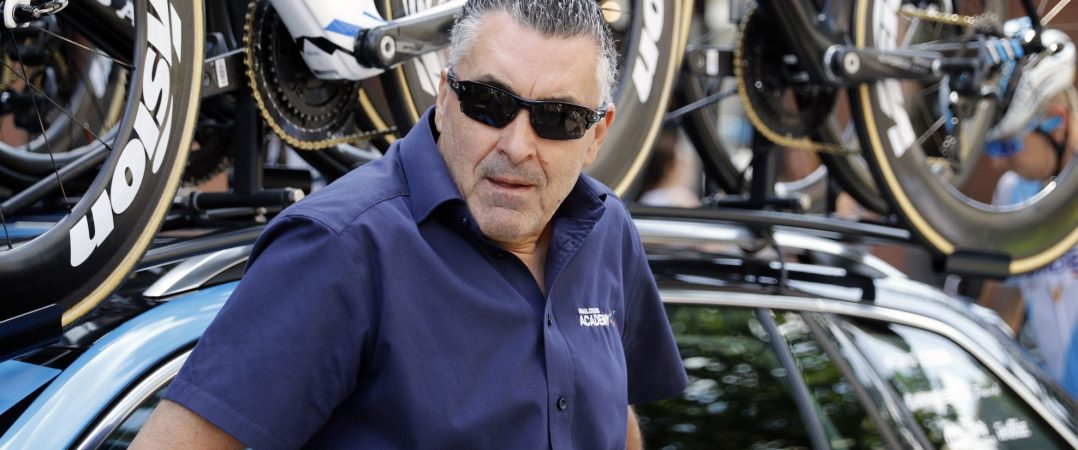
Van Lancker’s name should be familiar to British bike racing fans – he won our own Tour of Britain, the Milk Race in 1985.
He’s now a DS with Israël Cyling Academy but when he was locked down like the rest of us a while ago we caught up with him at home near Oudenaarde in Flanders – the bike racing Heartland, after he’d been out for his morning pedal, to chat about his own racing career.
You started off with the Fangio team, Eric?
“Yes, I signed a two year contract with them, it was a small team, Wilfried Reybrouck was the man behind it with his brother Guido – who won Paris-Tours three times – as sport director.”
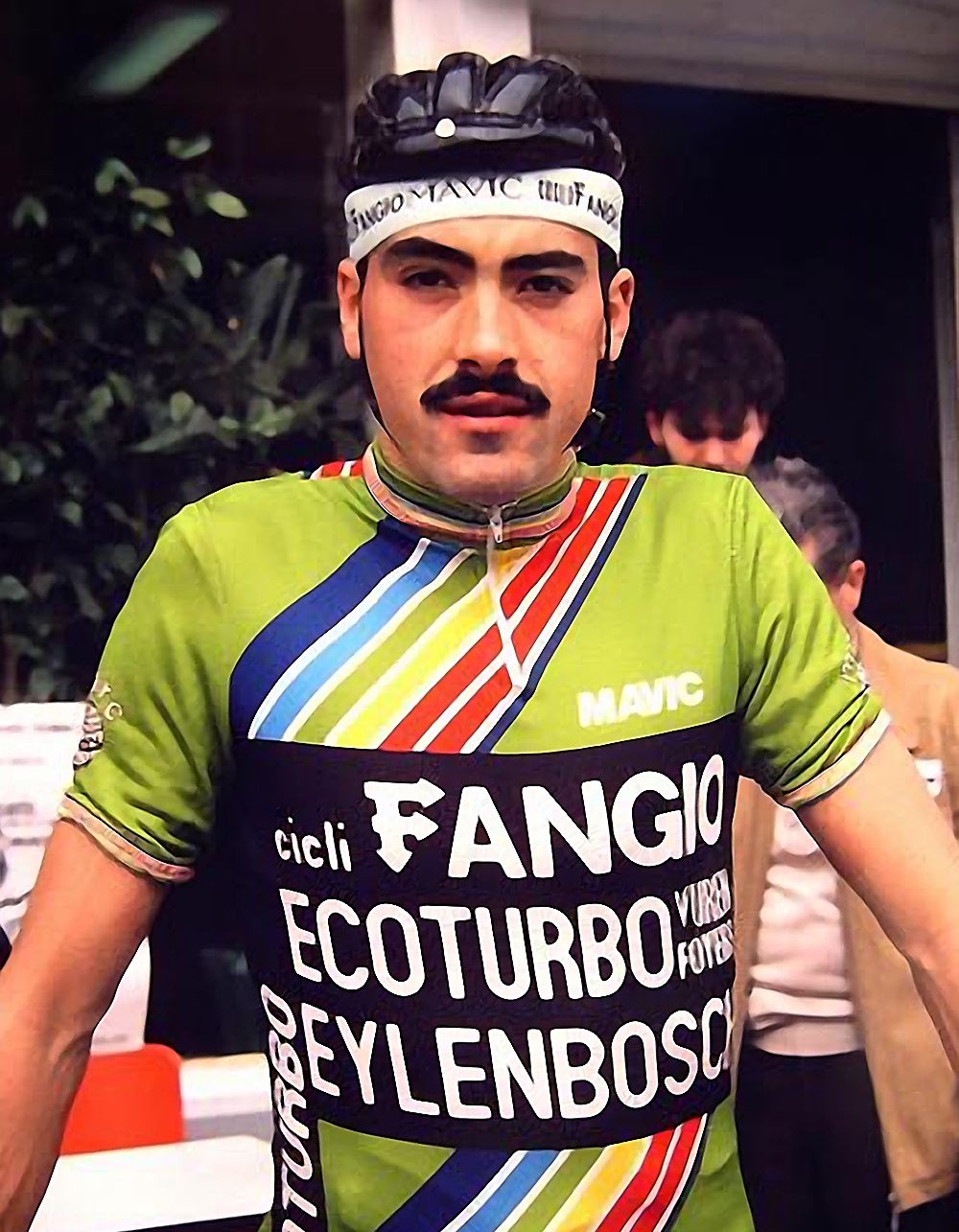
You were third in Paris-Brussels 1984 [now known as the Brussels Classic, ed.] as a neo pro; that was a strong result.
“It was a race which proved that I had Classics distances in my legs.
“The parcours was 301 kilometres, Eric Vanderaerden won from Charly Mottet; that was a tough finish, uphill.”
The next season was a big one for you, winning the Tour of Britain, the Milk Race.
“I took two stages on the way to overall victory in Britain and proved that I was a good stage race rider.
“I’d ridden well in the Giro della Valle d’Aosta in Italy as an amateur and in the Tour de l’Avenir in France in 1984 but my ride in the Milk Race confirmed it.
“I also won a stage in the Tour of Denmark that year.”
And those performances got you a ride with Peter Post’s now legendary Panasonic team?
“Yes, and I could spend the rest of the day telling you ‘Post stories’ but when he came to me and asked me to sign, he said; ‘there’s something you have to do before you sign with us – that moustache has to get shaved off!’
“He was the kind of boss who couldn’t exist now; he could be a nice man but if you had a bad day then you knew what was waiting for you at the dinner table in the team restaurant, that night!”
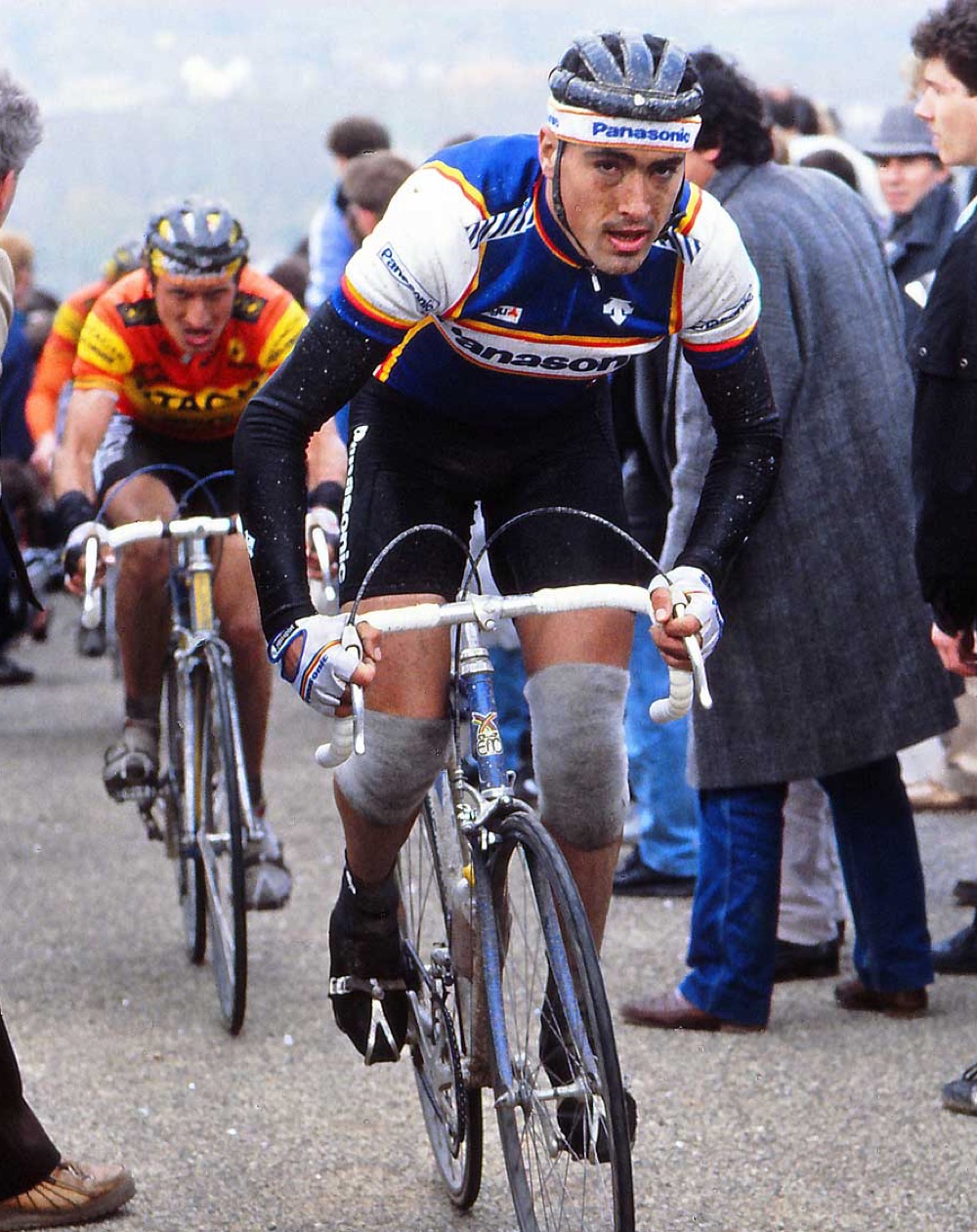
Your first season with Post in 1986 went well.
“Yes it did, I won a beautiful stage on Mont Ventoux in Paris-Nice then a stage in the Giro d’Italia and another in the Tour de Suisse.
“It was perfect to get the win early in the season in Paris-Nice and to finish the season with three good wins, all of which cemented my position in the team.”
Second in the 1987 Giro di Lombardia; could you have won there?
“The Italian rider Moreno Argentin from the Gewiss-Bianchi team pipped me on the line for that one but it was a very important race for me because it made me realise that I could win a Classic.
“As a result of that performance I changed my training approach; I decided to go from being a GC rider to aiming for stage wins and Classic victories instead.”
You were in the winning Panasonic squad in the 1988 Tour de France TTT, that must have hurt?
“Before every TTT we were all nervous, second place was of no use to Post, we had to win, it was all about the prestige.
“At Futuroscope in 1990 Tour de France we won the afternoon 44.5 kilometre Stage Two TTT so that was good but at the dinner table that night the atmosphere wasn’t good because a break had got away on Stage One – which was run in the morning, and Frans Maasen (Buckler and The Netherlands) won the stage and Steve Bauer (7-eleven and Canada) took the yellow jersey.
“Post was pissed off because we didn’t have anyone in that Stage One break… if we had then we could have had someone in yellow for several days.”
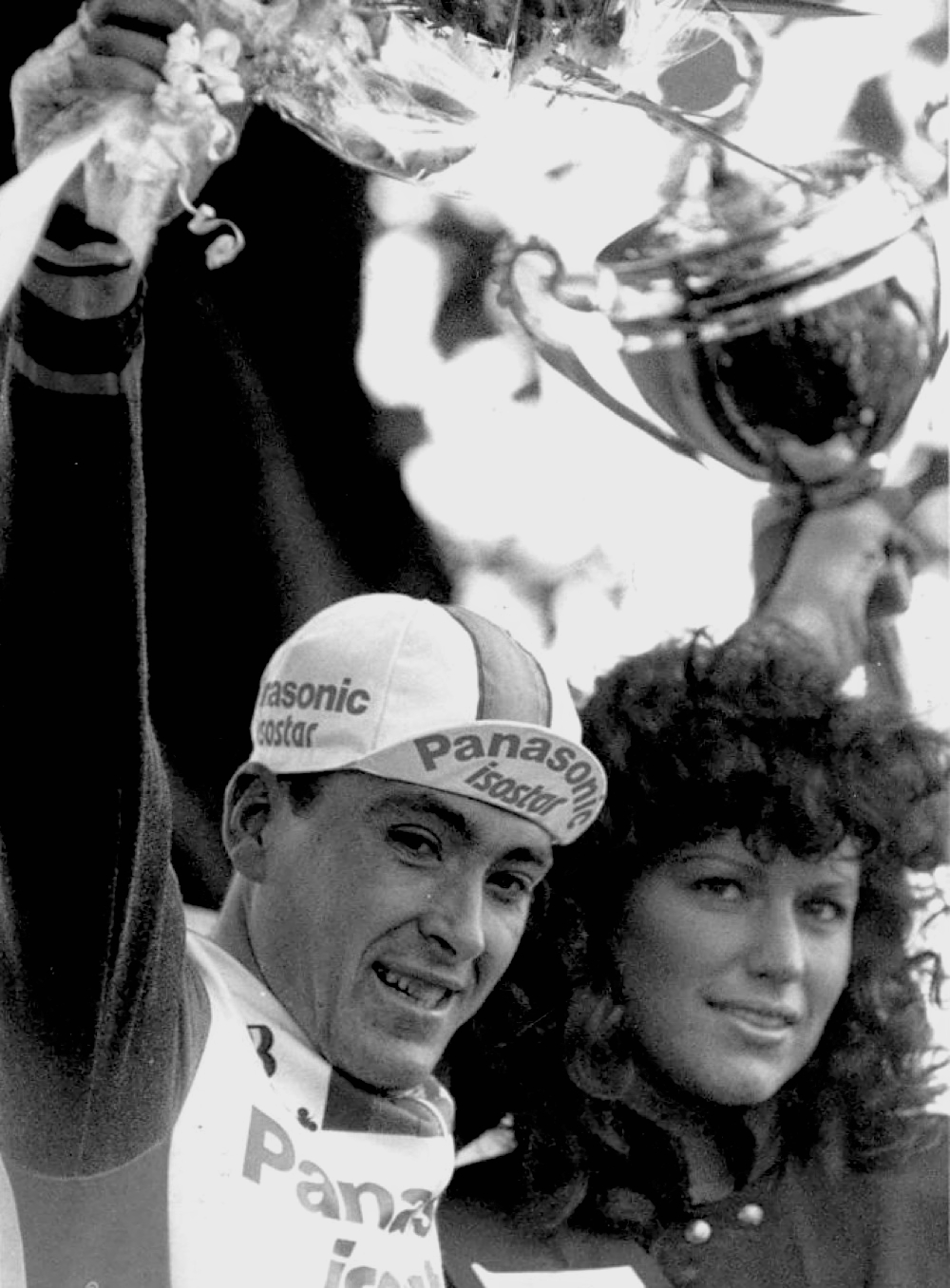
Your first Classic win came in 1989 when you won the Amstel Gold race.
“The Amstel was a very important race for a Dutch team, the only Classic on Dutch soil and a Post v. Raas battle.
“Jan Raas had ridden for Post with great success but they fell out and he’d started his own teams – it was Superconfex that year.
“It’s a great memory for me, my first win in a Classic.
“I was away with Mauro Gianetti (Helvetia and Switzerland) – the finish back then wasn’t just over the Cauberg as it was later – there was a left hand bend coming onto one of the late climbs.
“I saw Gianetti reach down to change down into the small chain ring – there were no brake lever shifters in those days – I left it in the big ring and attacked him right then, I got the gap and rode solo to the finish to win from Criquielion by 19 seconds.”
And the following year, 1990 you added ‘La Doyenne,’ the Liege-Bastogne-Liege.
“That was my most beautiful victory, the race finished in Liege in those days, beside the river, I got way on the Cote des Hornay climb with 20 kilometres to go, it was pretty much downhill all the way to the finish and I had 34 seconds on Jean-Claude Leclerq (Helvetia and France) at the line.”
Then in 1991 you won two World Cup Classics, the ‘Wincanton Classic’ in Brighton England and the GP of the Americas in Montreal Canada.
“I liked to go to England, I have good memories of winning there, in Brighton and in the Milk Race.
“In the Brighton race I attacked a group of 15 on the finishing circuit with about 10 kilometres to go and won solo by 29 seconds from Rolf Golz (Ariostea and Germany).
“The parcours in Canada was really hard, the same Mount Royal circuit as when Eddy Merckx won the Worlds in 1974 and Bernt Johannson won the Olympics in 1976.
“I was working for my team mate, the Italian Maurizio Fondriest who was leading the World Cup competition, I was in the leading group with him on the last lap but then he did something stupid, he was the fastest finisher there but he attacked with three kilometres to go.
“But it was good for me, I could sit on – they pulled him back and it came down to a sprint where I beat Steven Rooks (Buckler and The Netherlands) and Martin Earley (PDM and Ireland).”
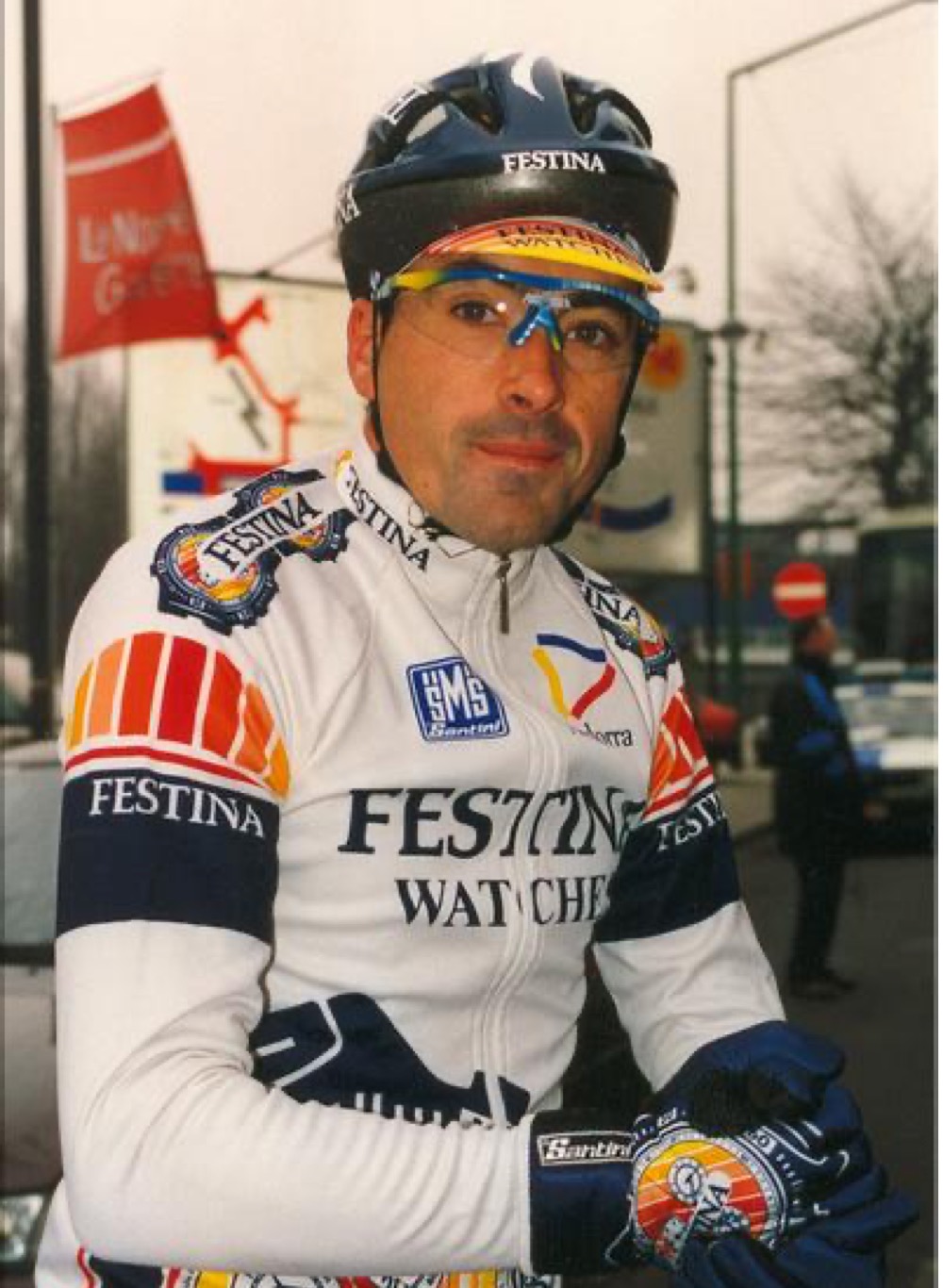
In 1993 you went to Lotus Festina.
“In 1991 I won two World Cups but at the end of 1992 Panasonic finished and the team was to become Histor for 1993.
“Post said to me that I could come to the team but I had to take less money, so I moved on.
“I signed a contract with Lotus-Festina but it was a strange mix of a team with guys from PDM, RMO and the previous Festina line up…
“We went to the Giro and in the last week Miguel Indurain was in the lead, Banesto management approached us and asked if we would help them – for a fee. The team agreed and we were on the front a lot, working for the Spaniard.
“Rodriguez, the big boss of Festina saw this and said we were paid to work for him, not Banesto and fired all the riders who were at the Giro.
“I lost half the season and six months salary, we tried to pursue it through lawyers but because the team was registered in Andorra it was impossible to get a result.”
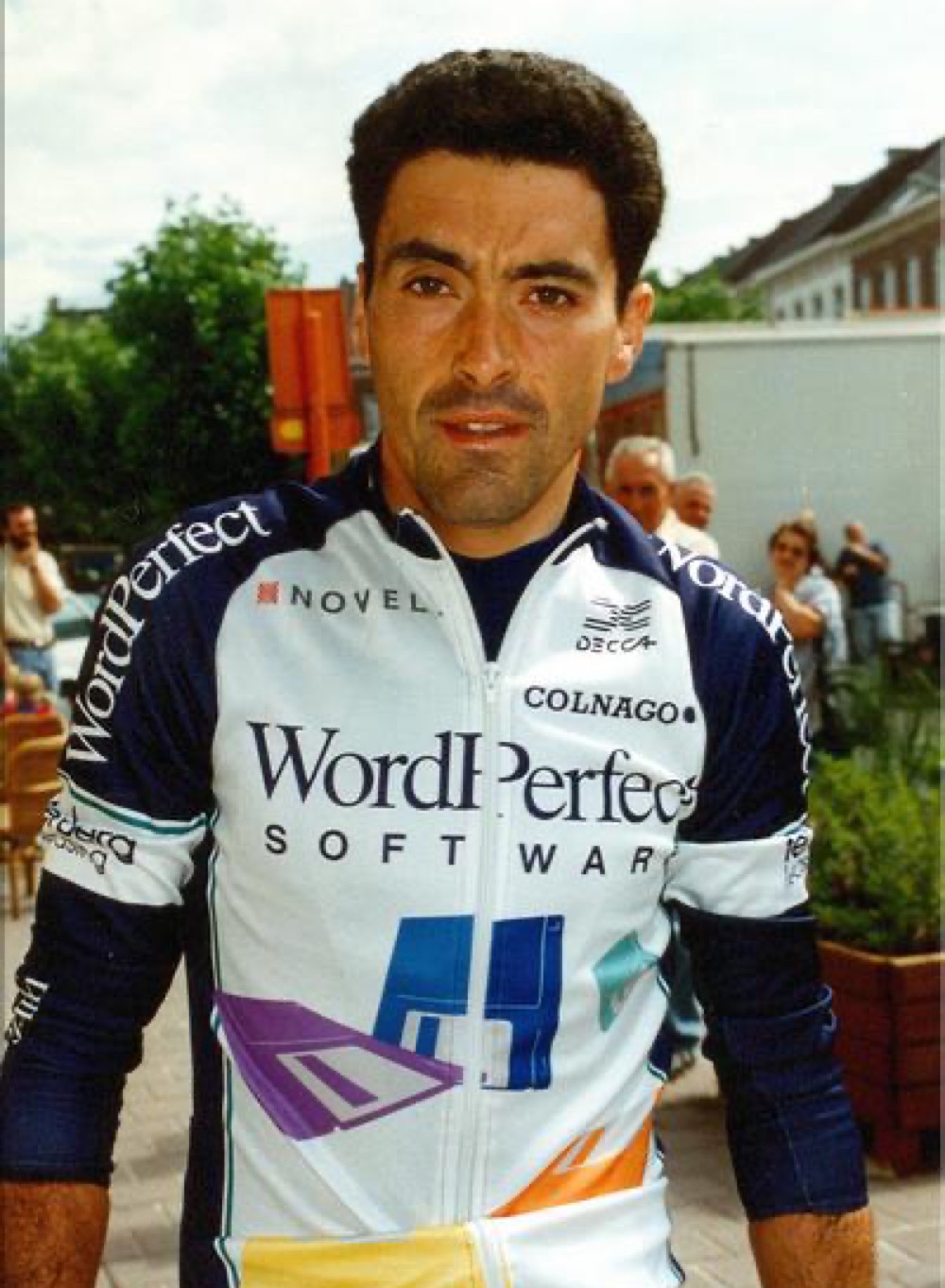
Then you were with WordPerfect in 1994.
“I was lucky to get a ride with the team because I had no results from the year before.
“Wordperfect was Jan Raas’s team and it was a good team but at the end of that year they changed the team policy, when it became Novell, to one where they wanted a predominantly Dutch squad.
“Raas was different from Post but he liked a drink and that’s all fine and good after hours but not when you’re delivering team briefings a little drunk – it’s not professional.
“I won the semi-classic Brussels-Ingooigem that year and was best Belgian in the Flèche Wallonne, I was 15th with 10 Italians ahead of me and Gewiss-Ballan in first, second and third places and no one able to follow them.
“They said it was all down to altitude training, but, well…”
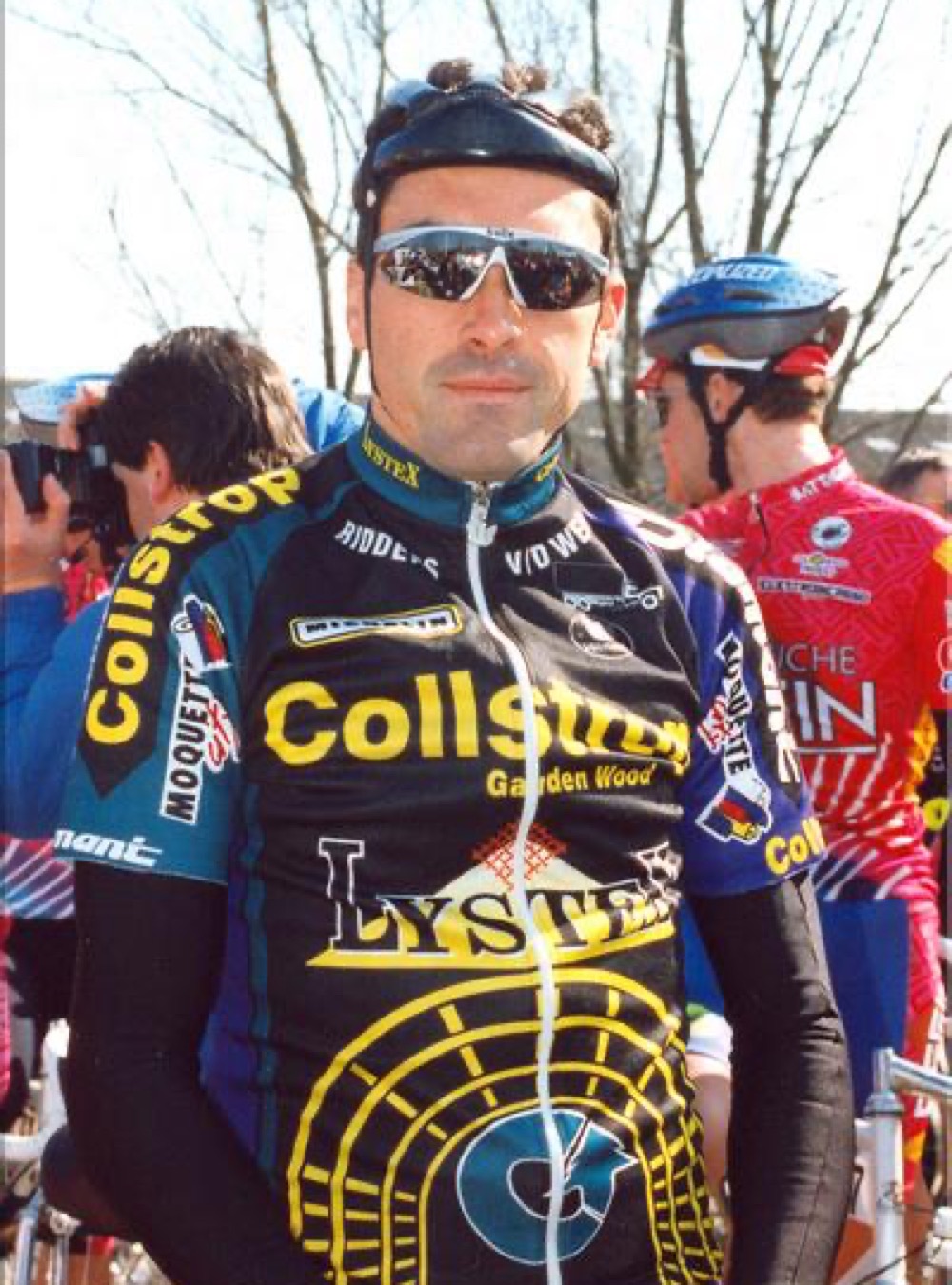
Your last year was with Colstrop in 1995.
“My last year, yes, and it wasn’t an easy year; you notice the changes when you go from a big budget team to a smaller outfit.
“Not that there was anything wrong with the team but you get used to flying to races, not sitting in a team car.”
With hindsight Eric, anything you would have done differently?
“I’m happy with my career, I won four Classics including a Monument and stages in many of the great stage races, we didn’t talk about my stage win in the Pais Vasco – that was another nice result.
“I suppose the only thing I regret is not winning the Belgian Championship, that was one race I always wanted to win…”



